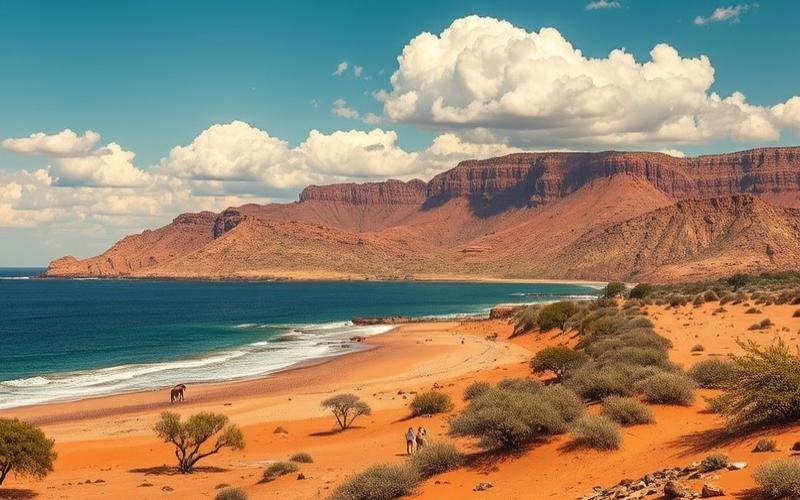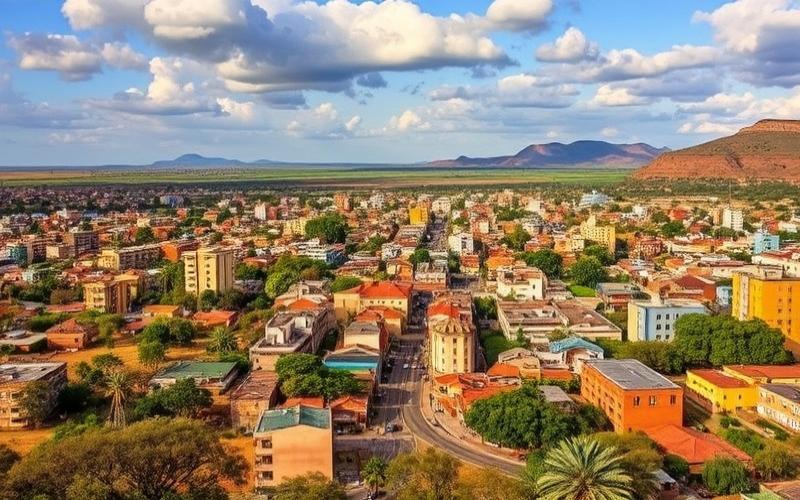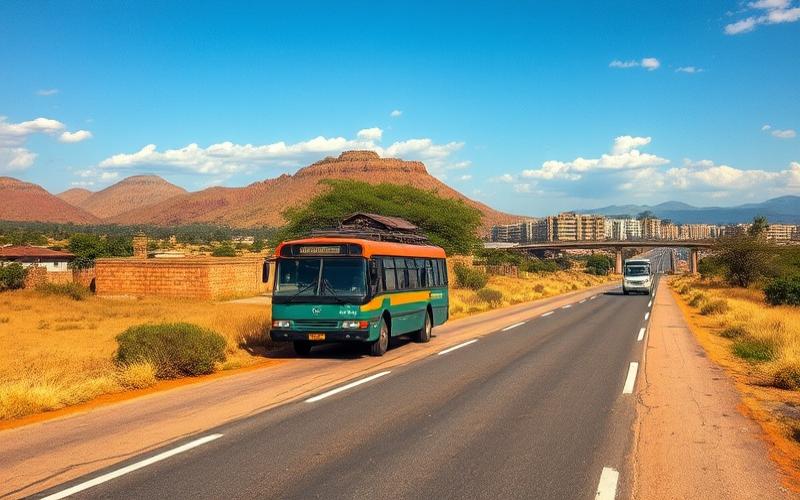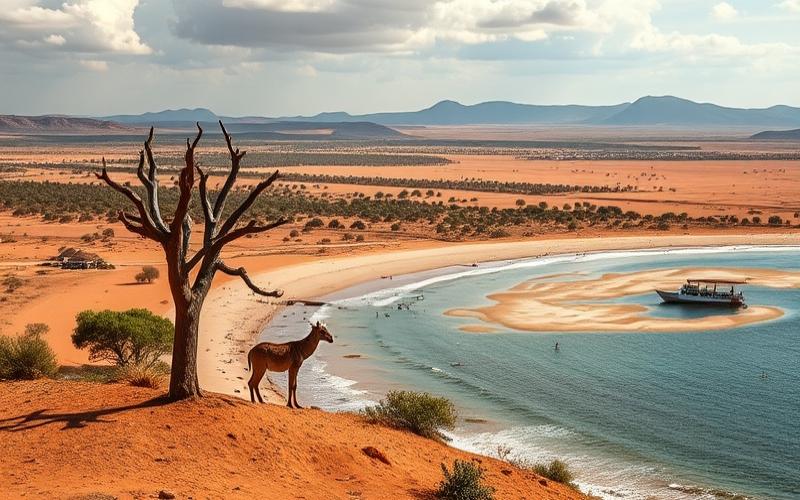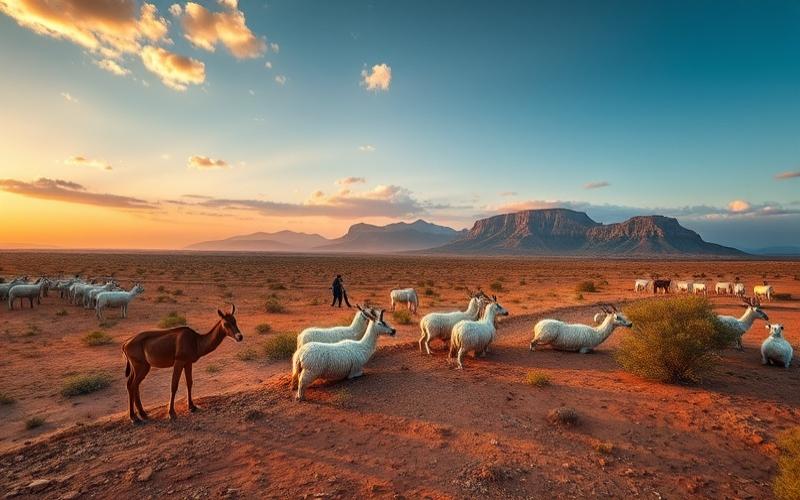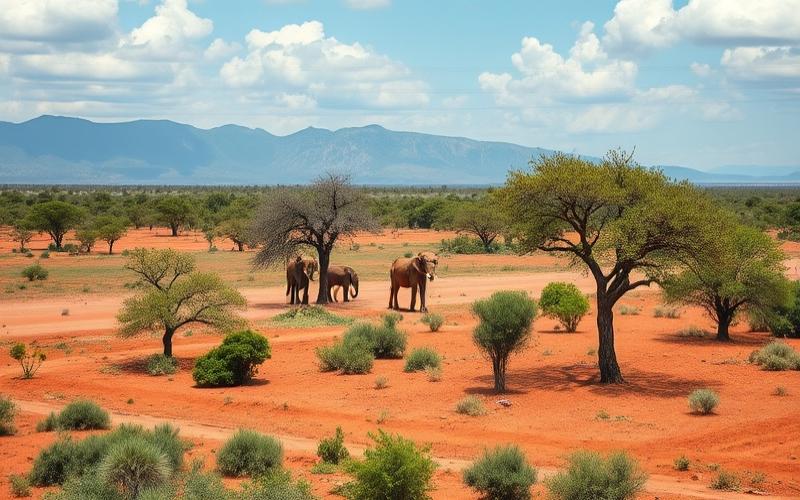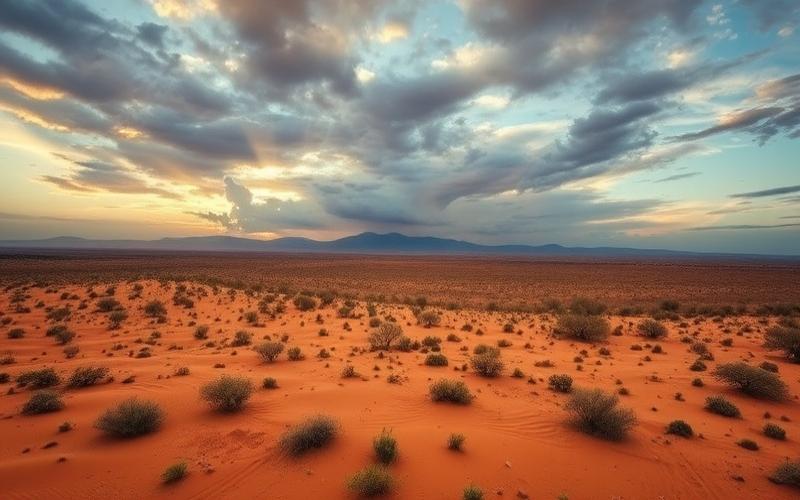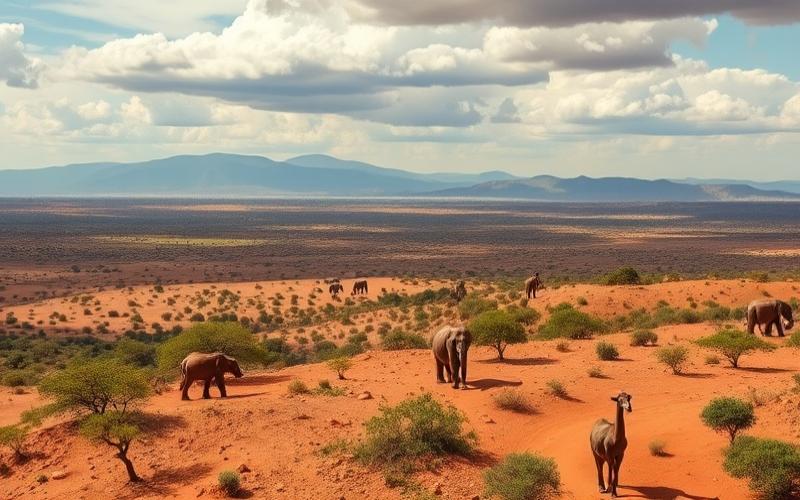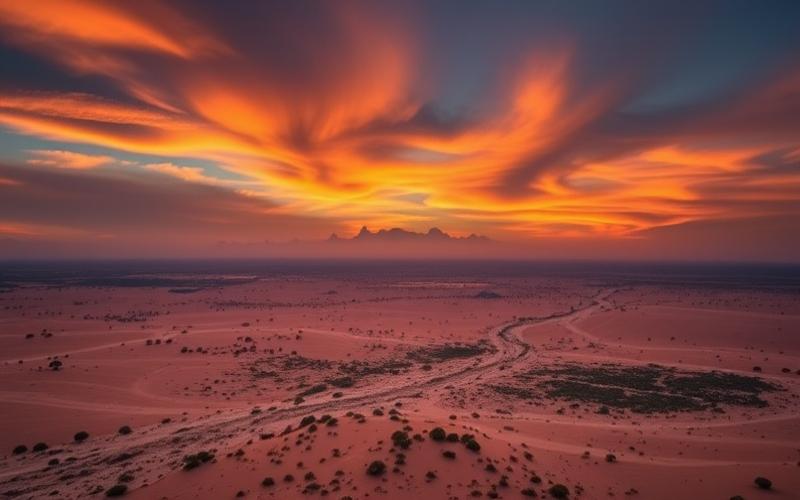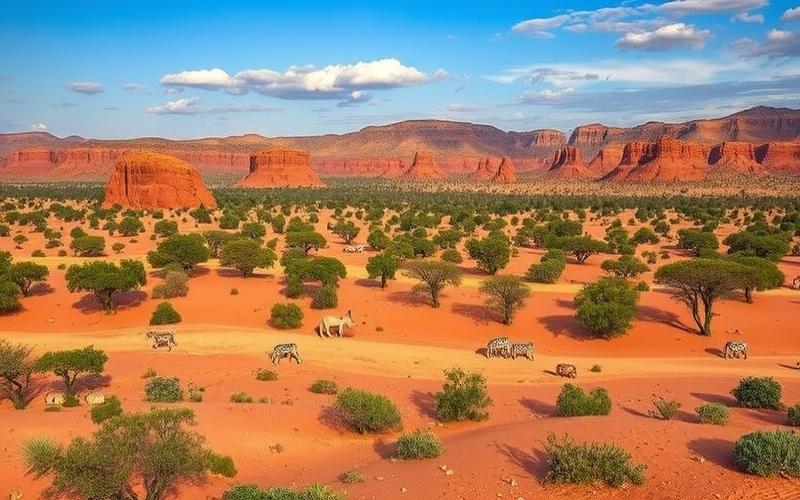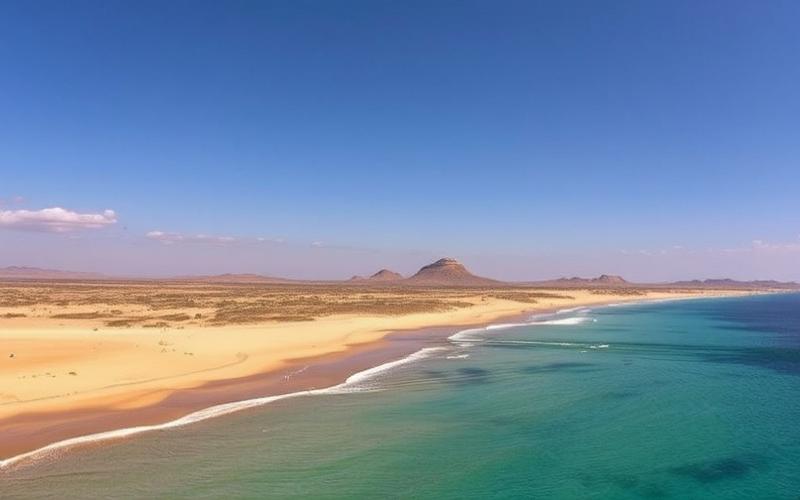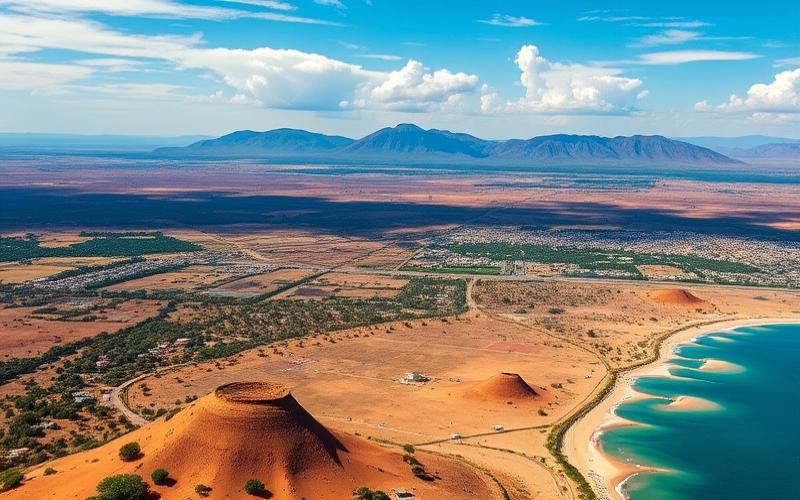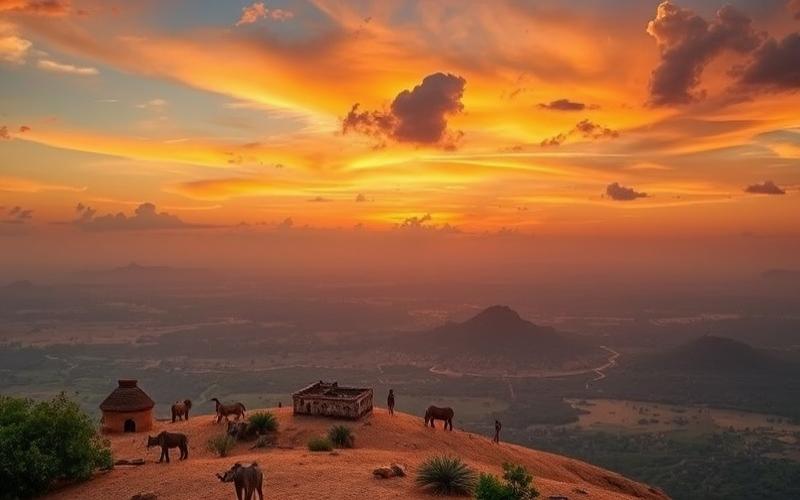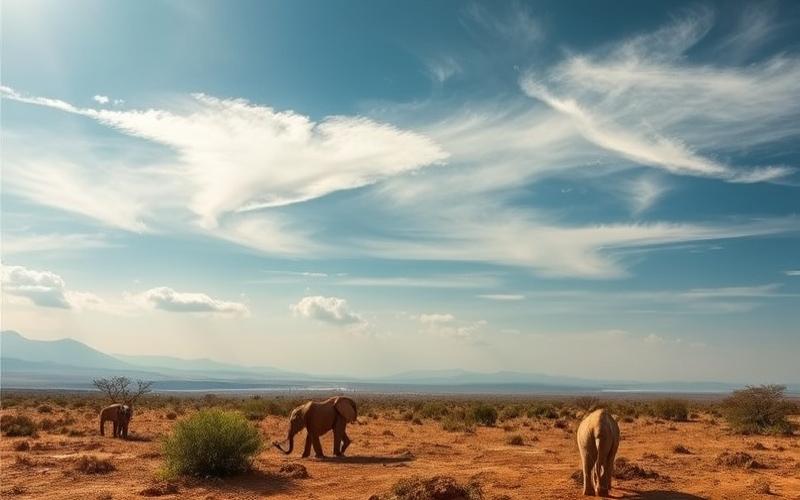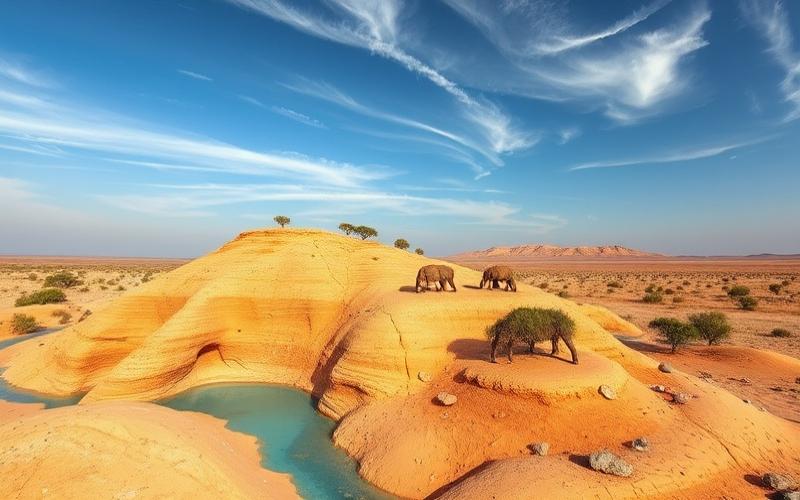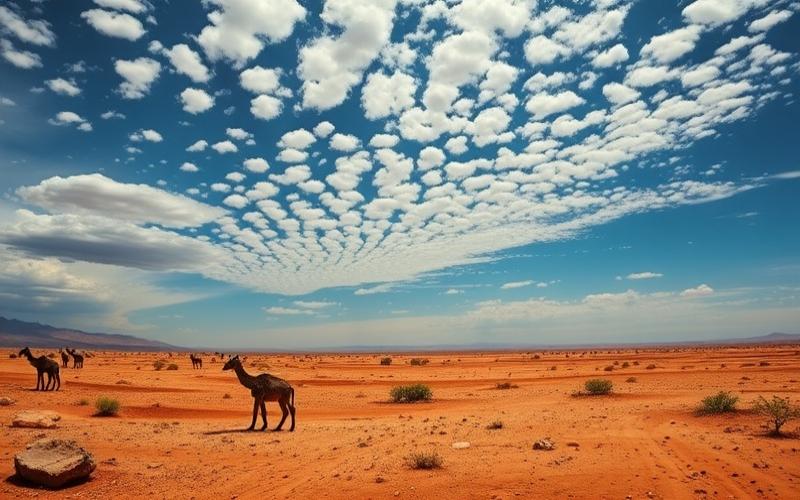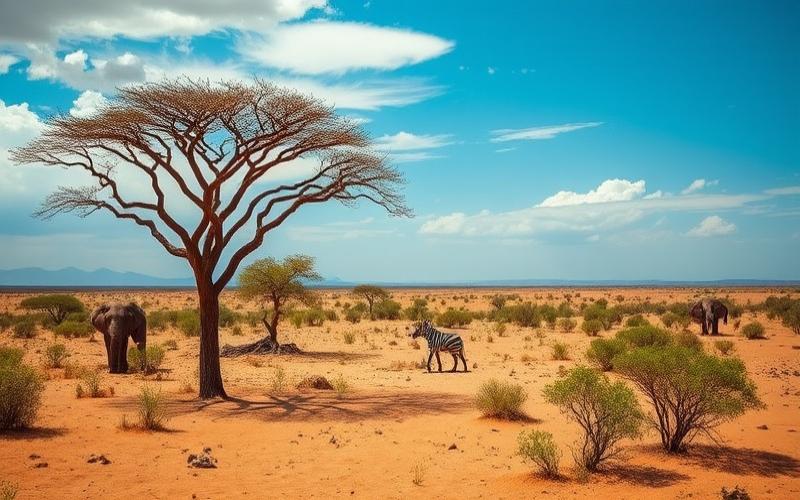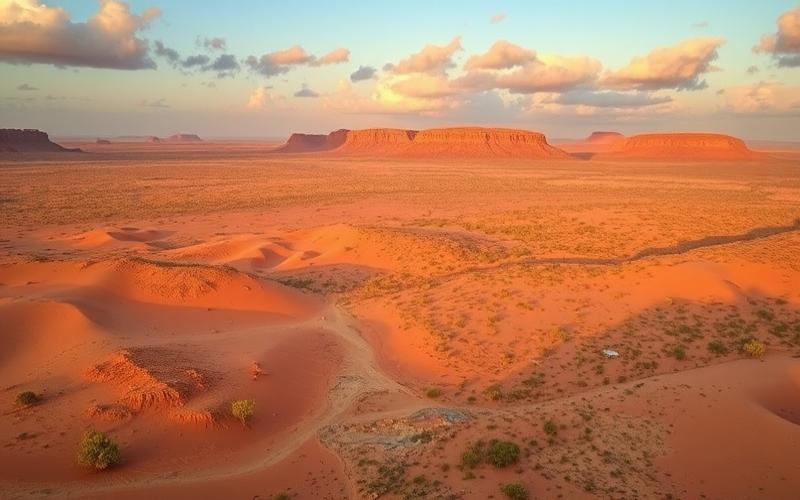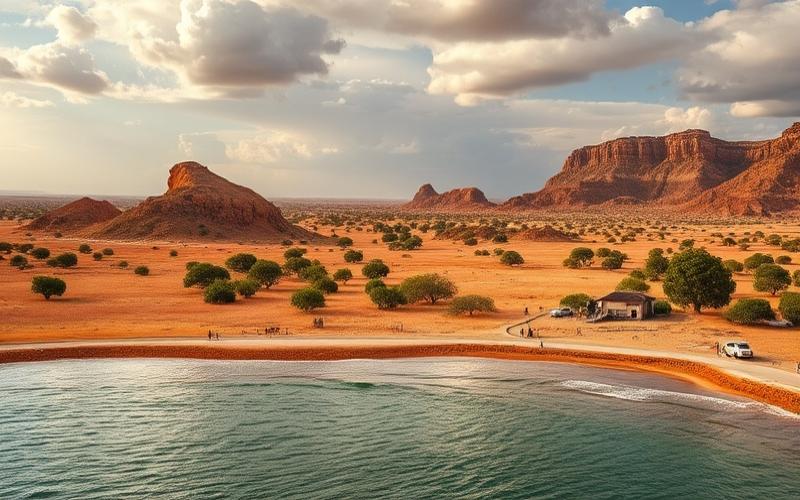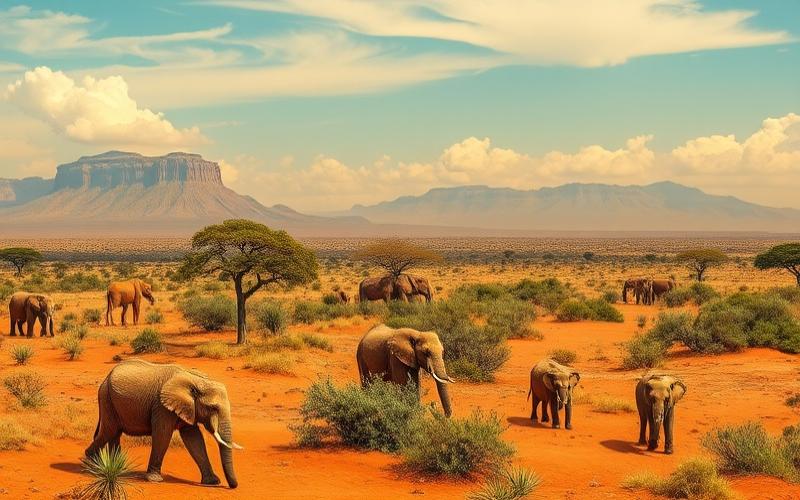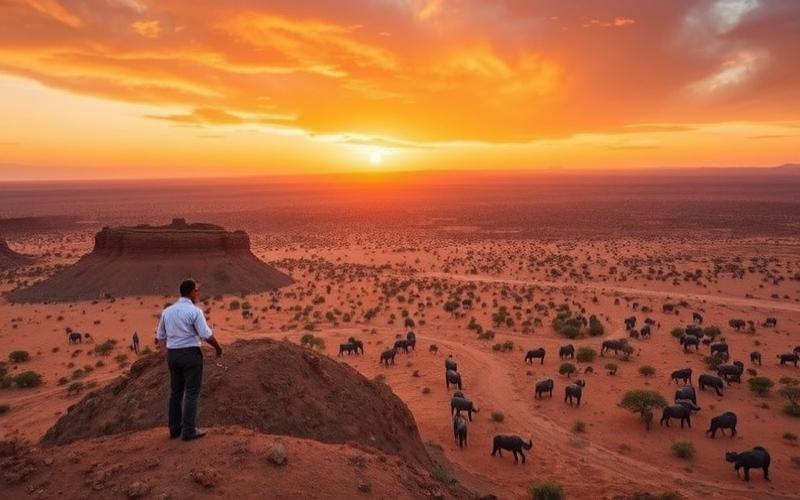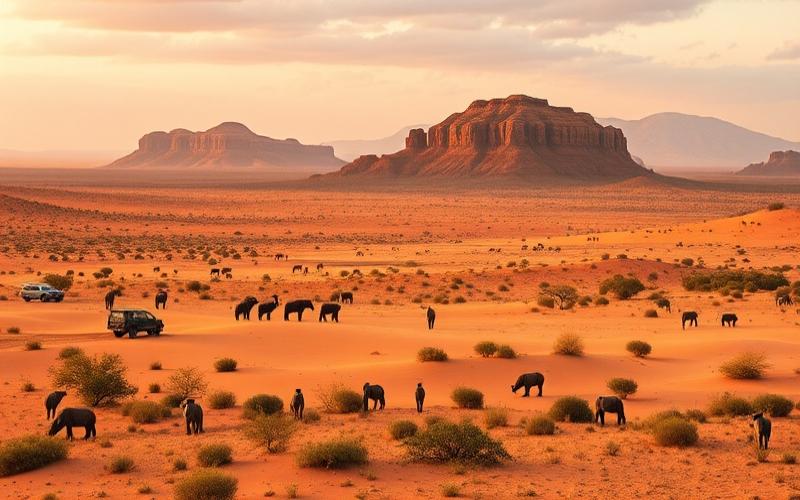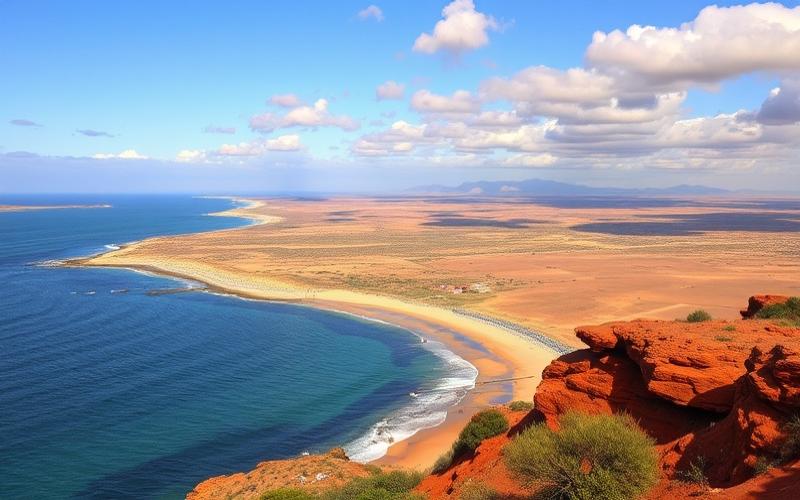
 Published on and written by Cyril Jarnias
Published on and written by Cyril Jarnias
South Africa: Premier Destination for Nature and Hunting Enthusiasts
South Africa, emblematic of wildlife diversity, attracts numerous nature and hunting enthusiasts each year who wish to explore its vast landscapes. However, embarking on a hunting adventure in this country requires a thorough understanding of the strict regulations in force.
Obtaining a hunting permit isn’t merely a formality; it requires familiarization with specific procedures that ensure respect for the country’s fragile and protected ecosystem.
From the application process to legal requirements and environmental considerations, each step is crucial to ensure a responsible hunting experience in harmony with South African laws.
By delving into this article, readers will discover how to successfully navigate through the legal intricacies while contributing to the sustainable development of local wildlife.
Essential Steps to Obtain a Hunting Permit in South Africa
To obtain a hunting permit in South Africa, several administrative procedures are required. The steps, documents, timelines, and regulations vary depending on the type of game, the province involved, and the nature of the hunt (local hunting or hunting with firearm importation).
Main Administrative Steps
- Choosing the permit type
The type of permit depends on the hunted game (big game, small game, protected species) and the province. - Preparing required documents
- Valid passport (valid for at least six months after entry date)
- Proof of official identity
- Hunting training certificate (mandatory for certain permit types)
- Medical certificate (sometimes required)
- Hunting liability insurance
- Invitation letter or contract with a reserve/professional hunter (often required for foreign hunters)
- For firearms: temporary firearm import permit, completed SAPS 520 form, proof of firearm ownership, export license from country of origin, invitation letter from hunting reserve owner
- Submitting the application
- Online or with competent provincial authorities
- For protected species, specific application to South African Department of Environment
- Paying application and permit fees
Costs vary by permit type and province (see table below) - Possible competency tests
Some provinces require passing a competency test or presenting a recognized training certificate - Processing time
- From a few days to several weeks depending on permit type and time of year
- For temporary firearm import permits, allow at least 2 to 6 weeks
Summary Table of Permit Types, Costs, and Timelines
| Permit Type | Game Concerned | Required Documents | Cost (Approximate) | Processing Time | Validity |
|---|---|---|---|---|---|
| General provincial permit | Small game, common game | Passport, proof of identity | 100-300 ZAR | 1-2 weeks | Current season |
| Big game hunting permit | Antelope, buffalo, etc. | Hunting certificate, insurance | 500-2000 ZAR | 2-4 weeks | Current season |
| Protected species permit (CITES) | Rhinoceros, elephant, leopard | Special authorization, quota, CITES | 5000-20000 ZAR | 1-2 months | Limited |
| Temporary firearm import permit | All hunts with firearms | SAPS 520, firearm docs, invitation letter | 0-600 ZAR | 2-6 weeks | 90 days max |
Frequently Required Documents and Proof
- Machine-readable passport
- Hunting training certificate (validated by recognized organization)
- Proof of residence
- Hunting liability insurance
- Invitation letter from a reserve or professional
- Temporary firearm import permit (if applicable)
- For CITES species: CITES export and import permits
Local/National Regulations and Restrictions
- Respect hunting quotas and seasons: each permit specifies the species and maximum number of animals that can be taken, as well as the authorized period.
- Hunting protected species: strictly regulated, requires special authorization, often accompanied by an annual national quota set by the Department of Environment.
- Hunting register: mandatory to keep a record of harvests and register trophies with authorities.
- Prohibited or regulated areas: some reserves or national parks prohibit hunting or impose specific rules.
- Compliance with CITES laws: for threatened species, mandatory export/import permits.
Seasons and Game Types
Hunting seasons are set annually by province and vary by game.
Some species can only be hunted under quota or in designated areas.
Older males are typically targeted for threatened species, to limit impact on reproduction.
Legal Framework and Conservation
Hunting in South Africa is governed by national and provincial laws, with particular attention paid to species conservation and respect for annual quotas. Hunting permits for threatened species are justified by scientific studies and rigorous population management.
List of Key Points to Remember
- Permit type depends on game and province
- Required documents: identity, training certificate, insurance, firearm import permit
- Timelines: 1 week to 2 months depending on permit
- Costs vary significantly by species, province, and permit type
- Strict compliance with quotas, seasons, and conservation laws
- Specific requirements for protected species hunting (CITES, quotas, special authorizations)
- Some regions impose additional restrictions or prohibit hunting
Recommended South African Official Sources for Procedures and Legislation:
- South African Department of Forestry, Fisheries and the Environment (DFFE)
- South African Police Service (SAPS) for firearm importation
- Provincial Nature Conservation Authorities (e.g., Eastern Cape Parks, KwaZulu-Natal Wildlife)
- Official CITES website for protected species
Good to Know:
Hunting permits in South Africa vary by game type and season; it’s imperative to present proof of identity and a hunting training certificate, and permit acquisition can take up to 12 weeks. Consult the South African Department of Forestry, Fisheries and the Environment website for updated information on fees and specific regional restrictions.
Understanding South African Hunting Regulations
Hunting in South Africa is governed by strict legislation, aiming to regulate practices and ensure wildlife conservation. The country has one of the most structured hunting systems in the world.
Available Hunting Permit Types:
- Permits for commercial hunting (particularly for foreigners)
- Permits for recreational hunting
- Specific permits for certain species (e.g., lion, buffalo, antelope)
Permit Acquisition Conditions:
- Be of legal age and present a clean environmental criminal record
- Complete training or demonstrate competency in safety and hunting ethics
- Provide complete identity and pay corresponding fees
- Respect targeted species, authorized territory, and fixed period
Seasonal Restrictions, Quotas, and Territories:
| Restriction | Detail |
|---|---|
| Hunting seasons | Periods set annually by regions/provinces |
| Quotas | Strict limits per species to prevent overexploitation |
| Territories | Hunting authorized only on approved private or public reserves |
Roles of Local and National Authorities:
- Provincial authorities (e.g., Limpopo Nature Conservation): issue local permits, monitor compliance in their territory.
- National Department of Environment (DEFF): develops general policy, sets national quotas.
- South African National Parks (SANParks): ensure surveillance in their reserves.
List of Preventive Conservation Measures:
- Progressive ban on lion breeding for hunting
- Regular field controls against poaching
- Limited/regulated trophy exports for protected species
- Scientific programs to monitor animal populations
Penalties for Violations:
- Significant fines calculated based on offense severity
- Permanent revocation of hunting license
- Sentences may include imprisonment in some cases
Overview of Recent Legislative Changes with Direct Impact:
| Amendment/Change | Impact |
|---|---|
| Progressive lion breeding ban | Announced end to canned hunting; future limitation of trade |
| Strengthened trophy export controls | Increased restrictions to EU/Australia/USA |
Practices such as canned hunting now face gradual prohibition to improve the country’s international image regarding environmental policies. Commercial exports of bones or animal parts have been subject to increased regulatory requirements for several years.
Good to Know:
South African hunting laws require specific permits for each type of hunt, with strict seasons and quotas; non-compliance results in severe penalties. Recently, legislative changes have strengthened conservation measures, affecting authorizations and practices in certain territories.
Challenges for Expatriate Hunters in South Africa
Expatriate hunters in South Africa face several major challenges during their relocation and hunting practice:
Cultural and Language Differences
South Africa has marked cultural diversity, blending African, European, and Asian traditions. The language barrier (primarily English or Afrikaans) can complicate interactions with locals or guides. Understanding and respecting South African customs is essential for harmonious integration.
Travel Costs and Firearm Transportation
Hunting trips include significant expenses such as airfare, transfer to hunting areas, on-site accommodation, as well as specific costs for international transportation of firearms or specialized equipment. Additional charges like fuel may also apply depending on distance traveled.
Local Wildlife and Flora Regulations
Each hunted species requires a specific permit; some are subject to strict quotas to preserve their population. Environmental laws also impose ethical territory management (respecting seasons, prohibiting certain disrespectful practices).
Administrative Difficulties for Obtaining/Renewing Permits
The procedure often involves:
- Preparing a detailed file
- Providing a clean criminal record
- Validation by South African authorities
- Regular renewal depending on stay duration
| Main Challenge | Concrete Manifestation | Possible Consequence |
|---|---|---|
| Cultural differences | Multiple languages, varied social codes | Relational misunderstandings |
| Logistical costs | Expensive air tickets, firearm transport fees | Limited access to areas |
| Wildlife/flora regulations | Specific permits per species | Unintentional violations |
| Administrative difficulties | Complex files & regular controls | Delay/failure to obtain |
Local Association Support
Some local associations like Safari Club International offer:
- Updated regulatory information
- Networking with experienced guides
- Organization of integrating events
However, this support isn’t systematic nor always sufficient; some expatriates report lack of administrative or legal assistance during disputes.
Ethical Hunting & Environmental Respect
Adaptation requires:
- Strict respect of quotas set by each concession/ranch.
- Responsible practices (avoiding trophy/game waste).
- Systematic use of professional guides familiar with the terrain.
- Engagement in local initiatives promoting biodiversity conservation.
To overcome these obstacles:
- Frequent recourse to expatriate support networks (private online groups or specialized clubs).
- Close collaboration with local experts – seasoned trackers mastering indigenous languages and traditional techniques.
- Active participation in internal training offered by partner ranches/safaris.
Summary List of Strategies Used by Expatriate Hunters
- Train with certified South African guides.
- Join an internationally recognized local association.
- Regularly exchange in dedicated expatriate hunting forums.
- Seek personalized advice before departure through specialized agencies.
Constant adjustments thus allow foreign hunters not only to avoid costly administrative errors but also – progressively – to practice responsible hunting adapted to the unique ecological specificities of the South African territory.
Good to Know:
Expatriate hunters in South Africa must navigate through cultural and language barriers, in addition to high costs for firearm transportation, while respecting strict local regulations; it’s advisable to collaborate with local associations and rely on experienced guides to overcome these challenges.
Disclaimer: The information provided on this website is for informational purposes only and does not constitute financial, legal, or professional advice. We encourage you to consult qualified experts before making any investment, real estate, or expatriation decisions. Although we strive to maintain up-to-date and accurate information, we do not guarantee the completeness, accuracy, or timeliness of the proposed content. As investment and expatriation involve risks, we disclaim any liability for potential losses or damages arising from the use of this site. Your use of this site confirms your acceptance of these terms and your understanding of the associated risks.

